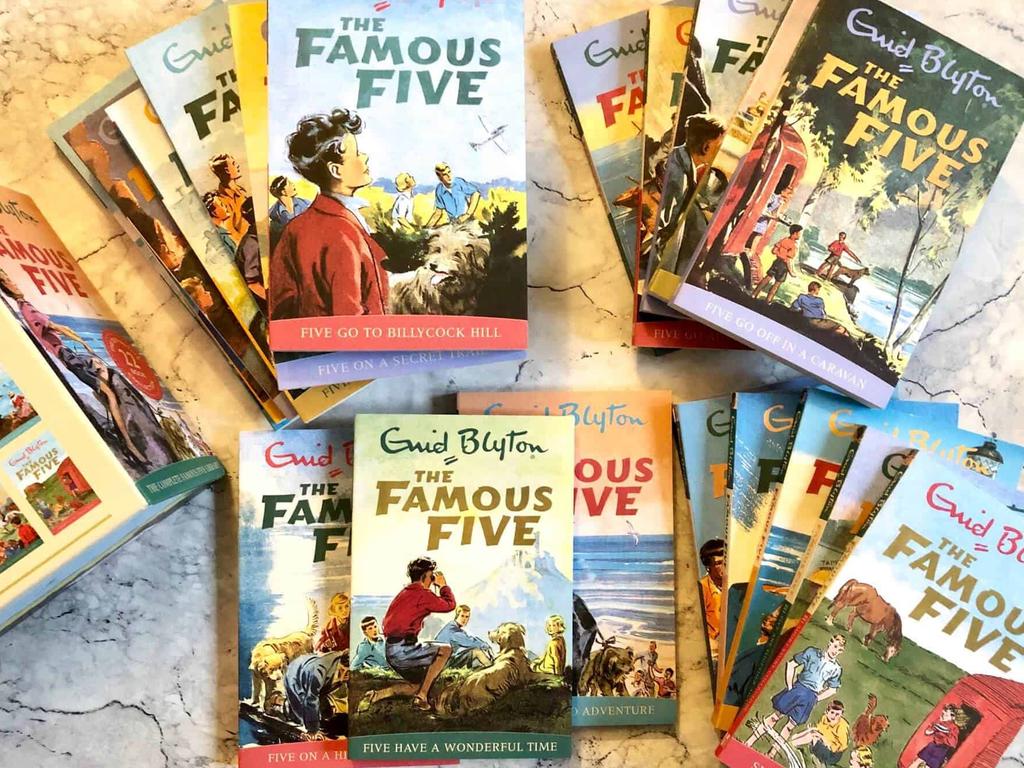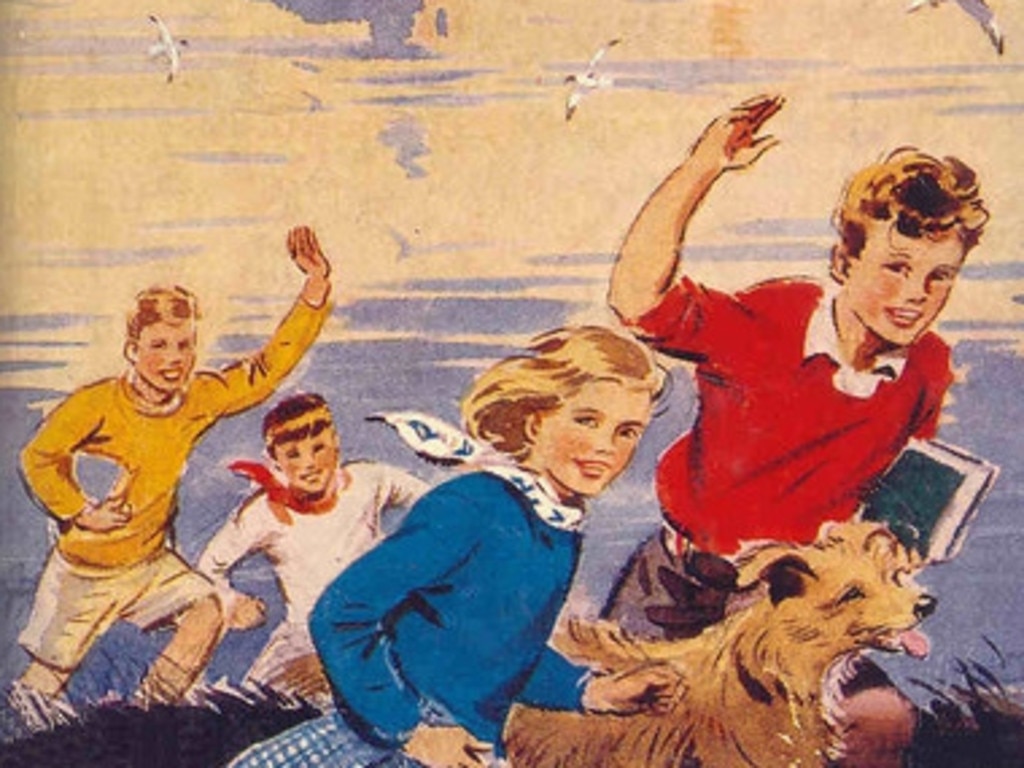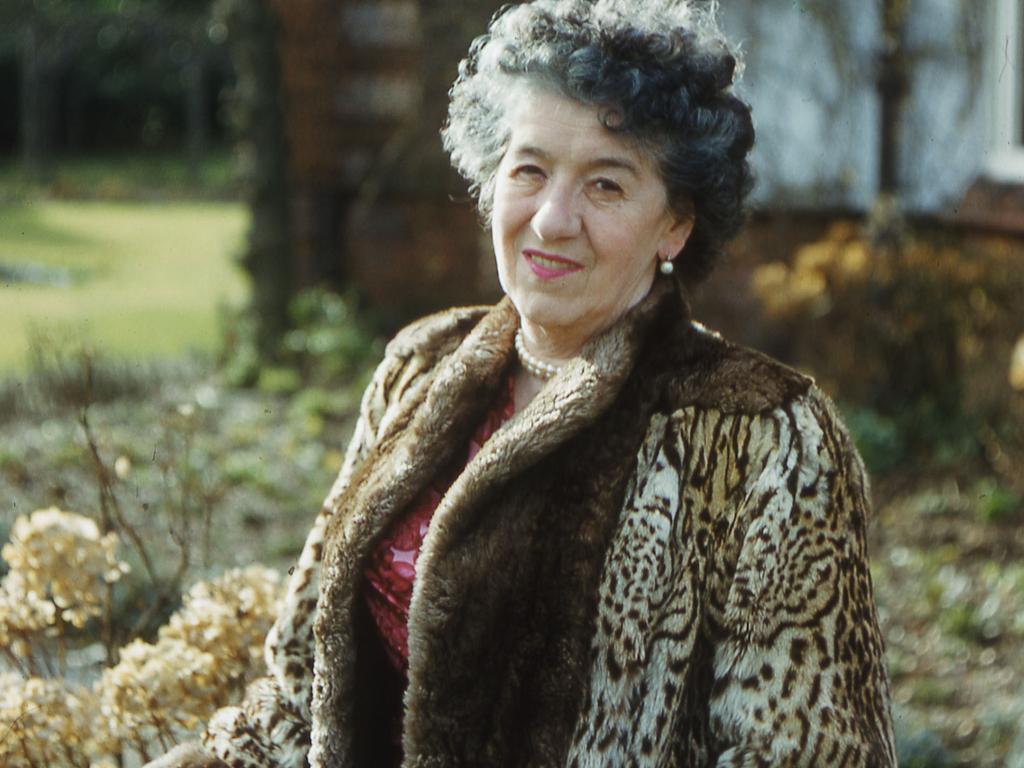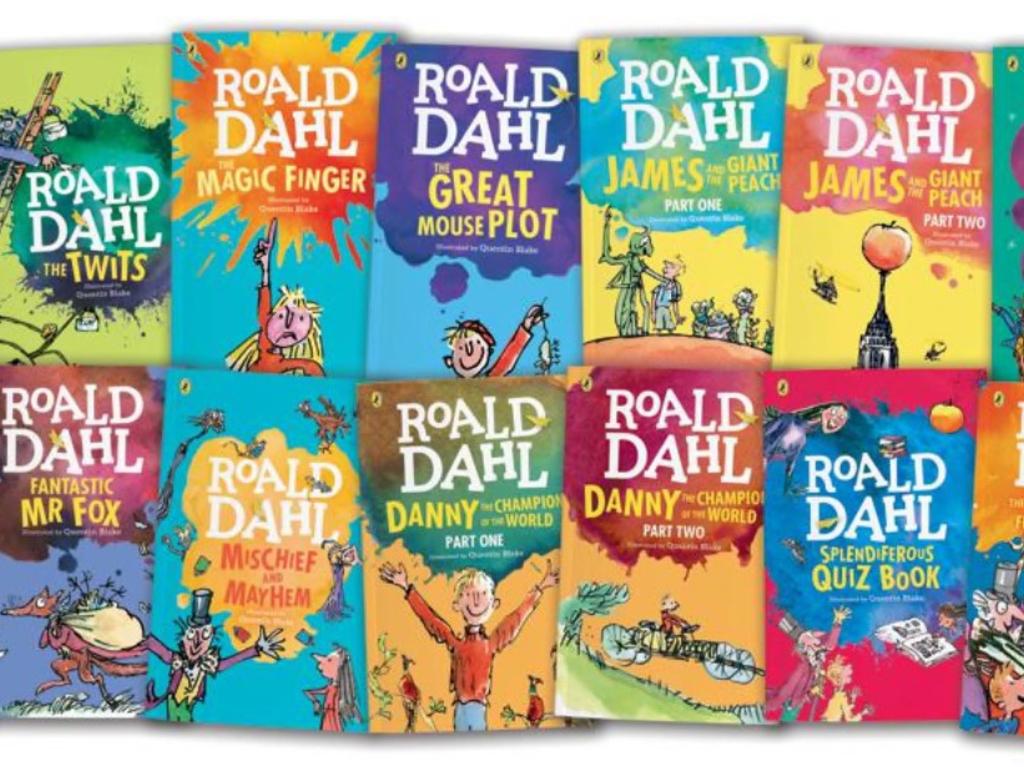‘Ongoing process’: Enid Blyton’s Famous Five books edited to remove ‘offensive’ words
The publisher of a classic children’s series has confirmed it will continue to rewrite the books to remove any “offensive terms”.

The publisher of the Famous Five series by Enid Blyton has confirmed it has will continue to rewrite the classic children’s books to remove any “offensive terms” as part of an “ongoing process”.
It comes after it was revealed that phrases such as “shut up” and innocent uses of words including “queer”, “gay” and “brown” had been censored from the books.
The beloved English children’s author, who died in 1968, is the latest to fall victim to “woke” edits as publishers quietly rewrite older works – at the direction of so-called “sensitivity readers” – to remove words and phrases now deemed offensive to modern sensibilities.
The Famous Five series of 21 books, the first of which was published in 1942, features the adventures of a group of children – Julian, Dick, Anne, George and their dog Timmy.
According to a report in The Australian, an audiobook of The Famous Five Short Story Collection has been edited in recent months. The first tale, Five Have a Puzzling Time, sees the group travel to Kirrin Island to investigate mysterious lights.
In the original text, George – a tomboy who cuts her hair short and demands people call her George instead of Georgina – wakes up her cousin Anne, who says, “Oh George, don’t be an a**. As if you could get your boat and row across the bay in the middle of the night!”
The audiobook now has Anne saying, “Oh George. As if you could get your boat and row across the bay in the middle of the night!”
Julian also originally rebukes his cousin, telling her, “Shut up, George. Be sensible.” In the edited version he now simply says, “George, be sensible.”

The Australian also reports at least two instances of “don’t be an idiot” have been cut from the collection, while a number of other, seemingly inconsistent changes have been made to the downloadable e-books.
2GB radio host Ben Fordham slammed the “woke” edits.
“I’m sorry to inform you but the PC sooks have struck again,” he said on Monday’s show. “The politically correct police are targeting more children’s books, and this time it’s Enid Blyton and The Famous Five series.”
Fordham suggested it was ridiculous to remove terms like “shut up”.
“Because they think that kids in 2023 can’t handle this kind of thing – do they think kids don’t say ‘shut up’ with or without a book written by one of the greatest authors of all time?” he said.
“Do they seriously think that young readers are going to be harmed by words like ‘idiot’? Keep in mind people have been reading Enid Blyton for more than 50 years. If only the censors would shut up and stop being idiots.”
Fordham added he didn’t understand why the “woke warriors” pushing the changes “don’t just write their own books”.
“There are so many feel-good, politically correct children’s books out there and they’re great,” he said. “So if that’s what you want, write them yourself instead of trying to change what was written by an award-winning author, long before you turned up and tried to rewrite their classic works.”

It comes after an analysis by the UK’s Daily Mail found innocent uses of “queer”, “gay” and even “brown” to refer to tanned faces had been removed from the books.
In Blyton’s first Famous Five adventure, Five on Treasure Island, “queer” was “very much Blyton’s favourite adjective, used as often as twice on one page, and applied to everything from cormorants to waves”, the publication noted.
But in the current editions, the word has been banished entirely, replaced variously with “peculiar”, “odd”, “strange”, “funny”, “weird” and “amazing”.
In the original, for example, Anne wonders why George has not greeted her and her brothers, remarking, “Isn’t she queer – not wanting to welcome us …” But the new version reads, “’Isn’t she odd – not wanting to welcome us …”
A description of “a brown-faced fisher-boy”, meanwhile, has been changed to “a suntanned fisher-boy”.
“Respect for elders seems to have gone out of fashion too,” the Daily Mail wrote. “When Julian apologised to Uncle Quentin in the 1942 version, he said, ‘I’m sorry, sir.’ Now, he is sorry – but does not include the apparently too subservient ‘sir’.”
Hodder Children’s Books, which publishes the series, sparked backlash in 2010 after releasing a series of “contemporary” adaptations of the books with phrases like “housemistress” changed to “teacher” and “mother and father” becoming “mum and dad”.

But the “sensitive text revisions” were abandoned in 2016, with the publisher conceding the new versions “didn’t work”.
“The feedback we have had six years on shows that the love for The Famous Five remains intact, and changing mother to mummy, pullover to jumper, was not required,” Hodder Children’s Books publishing director Anne McNeil told The Guardian at the time.
“We want Enid Blyton’s legacy to go on. Millions of readers have learned to read with her.”
In a statement on Tuesday, Hodder Children’s Books parent company Hachette confirmed the books would continue to be edited to remove “offensive” terms.
“Reviewing and editing the text of Enid Blyton’s books has been an ongoing process, beginning in her own lifetime and continuing now and, we anticipate, into the future,” a spokeswoman said.
“At Enid Blyton Entertainment (owners of the Enid Blyton estate and copyright, and part of Hachette UK), our intention is to keep Enid Blyton’s books and stories at the heart of every childhood, as they have been for generations.
“To do so, we work to ensure that there are no offensive terms in the books — changing words where the definition is unclear in context and therefore the usage is confusing, and where words have been used in an inappropriate or offensive sense — while retaining the original language as far as is possible.
“This enables a very wide international audience of children to enjoy the books, while also understanding that they were written and set in the past.
“In new editions, we do not change language for the sake of modernising it. We retain old-fashioned terms such as ‘bathing-suit’ and references to pre-decimal currency. The books’ period setting is part of their charm and is enjoyed by readers of all ages.
“Any historic changes previously made to new editions, which come under the category of ‘modernisation’ in this context, have been or are being restored to the original text at the point of reprint.”
Last month, the publisher of Roald Dahl books sparked a firestorm after it was revealed to be scrubbing “insensitive” words such as “fat”, “ugly” and “crazy” from classics like Charlie and the Chocolate Factory and James and the Giant Peach.
Puffin Books partially walked back its plan following intense public backlash, with the likes of acclaimed author Salman Rushdie condemning the “absurd censorship”.
“We recognise the importance of keeping Dahl’s classic texts in print,” the British publisher said in a press release. “We are offering readers the choice to decide how they experience Roald Dahl’s magical, marvellous stories.”
But the backlash has not deterred other publishers, with The Sunday Telegraph soon reporting Ian Fleming’s James Bond novels have been rewritten to remove a number of racial references ahead of 007’s 70th anniversary this year.

Ian Fleming Publications, which owns the literary rights to Fleming’s work, will re-release all of the Bond novels – written in the 1950s and 1960s – after commissioning a review by “sensitivity readers”.
The new versions will include a disclaimer that reads, “This book was written at a time when terms and attitudes which might be considered offensive by modern readers were commonplace. A number of updates have been made in this edition, while keeping as close as possible to the original text and the period in which it is set.”
And last week, children’s horror author R.L. Stine accused his publisher of making edits to his classic Goosebumps books without his knowledge, after The Times of London claimed that he had “censored over a dozen of his books” to avoid mentions of race or calling characters fat or crazy.
The Times said it had found more than 100 edits in e-book versions of the series of 62 books. It noted how one character who “acts real cool, like the rappers on MTV videos” now just “acts real cool” – and is described as having “brown skin” rather than being “African-American”.
Numerous uses of “crazy” were replaced with terms such as “silly”, “wild” or “scary”, while “roly-poly”, “overweight” and “plump” characters were now described as “cheerful” or “huge”.
“The stories aren’t true. I’ve never changed a word in Goosebumps. Any changes were never shown to me,” Stine wrote on Twitter in response to one fan angry fan accusing him of supporting “disturbing censorship”.
Scholastic confirmed in a statement that changes had been made, but did not immediately respond to Stine’s claim that he was unaware of the edits.

“For more than 30 years, the Goosebumps series has brought millions of kids to reading through humour with just the right amount of scary,” the statement said.
“Scholastic takes its responsibility seriously to continue bringing this classic adolescent brand to each new generation.
“When reissuing titles several years ago, Scholastic reviewed the text to keep the language current and avoid imagery that could negatively impact a young person’s view of themselves today, with a particular focus on mental health.”
The company that was hired to revise Dahl’s books, Inclusive Minds, describes itself as a “collective for people who are passionate about inclusion and accessibility in children’s literature” and nearly 100 “inclusion ambassadors” ranging in age from eight to 30.
The group also once employed a project manager who describes themselves as a “non-binary, asexual, polyamorous relationship anarchist”, the National Review reported.
In 2019, Australian “sensitivity reader” and journalist Jinghua Qian said the term was a “relatively new title for something that many of us have been doing for a while under other names”.
“I’m often asked to read something and offer feedback from my ‘insider’ perspective – whether that’s as a queer migrant of colour, a gender-fluid journo in China, or an Australian,” Qian wrote for ArtsHub.
“Writers ask me to do this in the hope that I’ll pick up things they might miss, such as mistakes, anachronisms or unintended stereotypes.”
Some authors including novelist Lionel Shriver have rubbished the concept. “The publishing industry doesn’t need more gatekeepers to make it blander yet and still more timid,” Shriver wrote in 2017. “The day my novels are sent to a sensitivity reader is the day I quit.”
But trans author Juno Dawson argues people should “stop moaning about sensitivity readers – if there was diversity in publishing we wouldn’t need them”.
“The six UK editors I’ve had since 2011 have all been cisgender white women from (I’m guessing) quite comfortable backgrounds,” Dawson wrote in The Guardian last year. “Their big bosses, almost exclusively, have been cisgender white men.”






